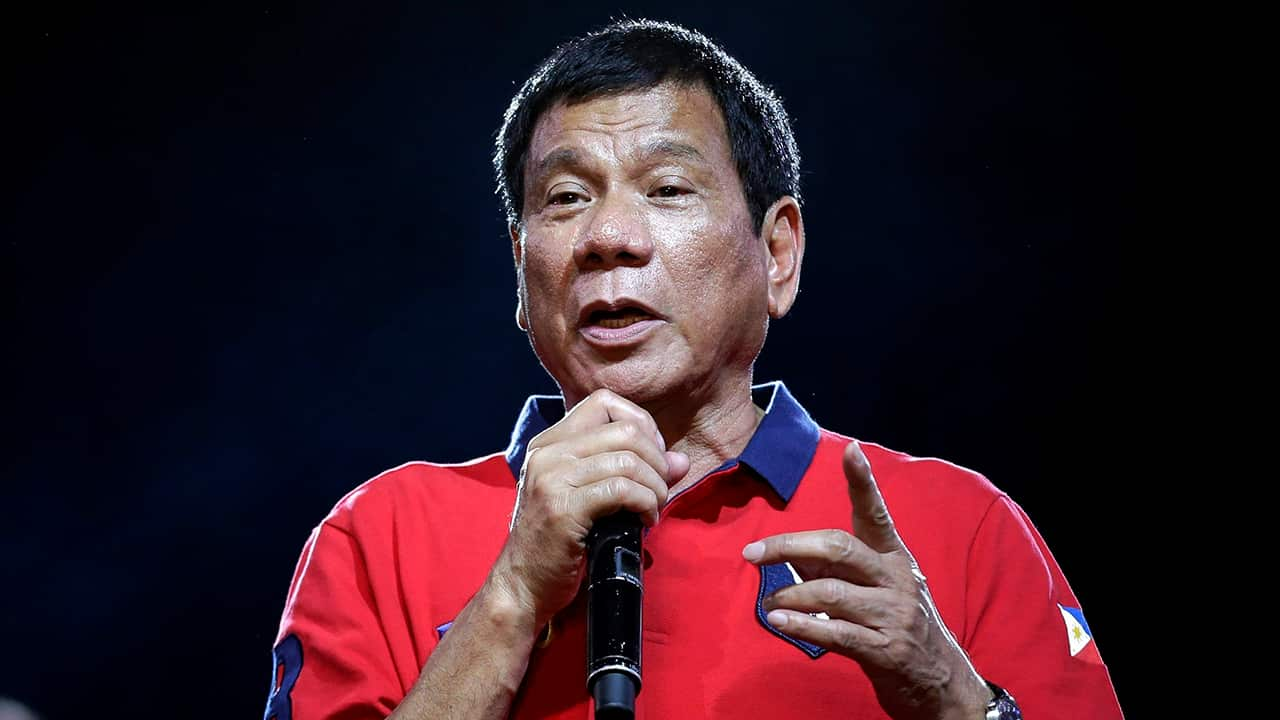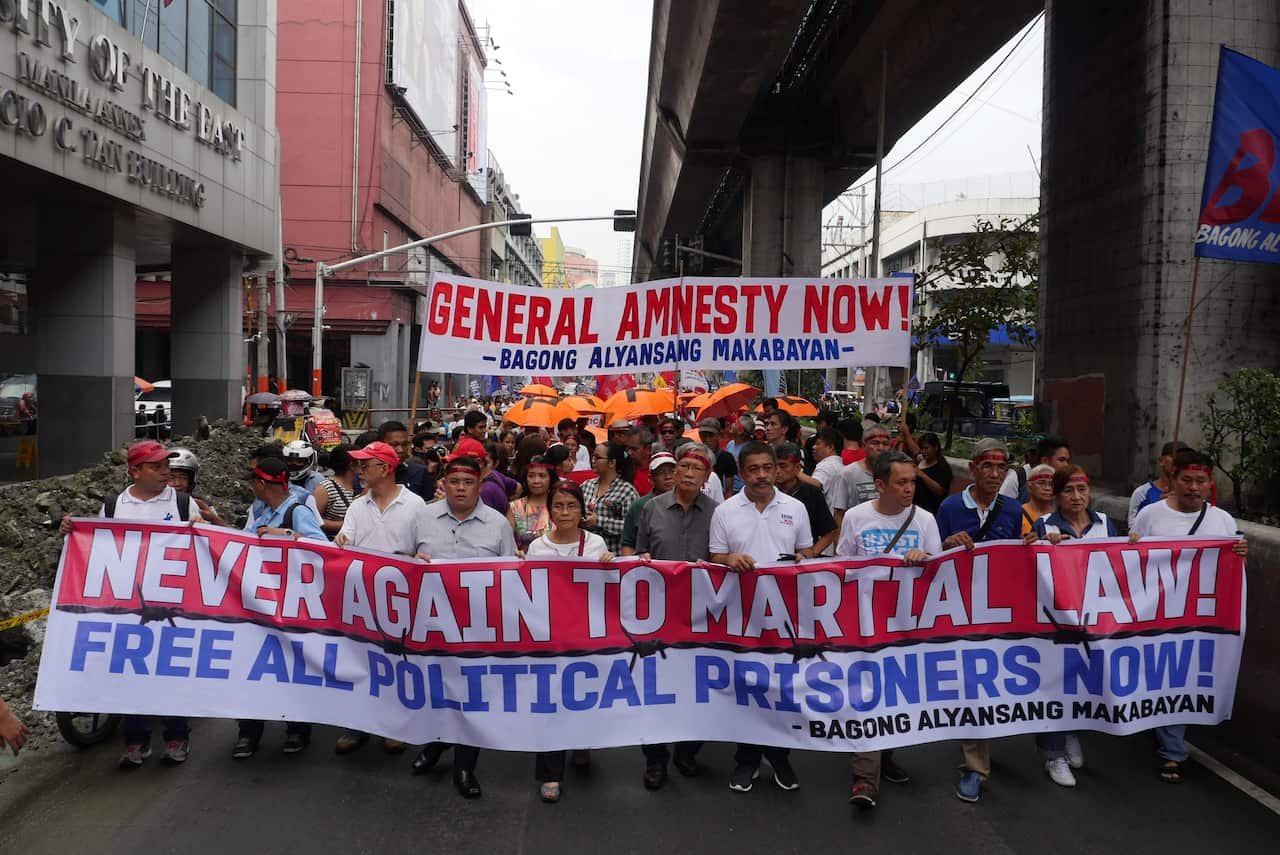A spokesperson from Australia's Council of Trade Unions has slammed Philippine President Rodrigo Duterte's war on drugs, saying it was important for the international community to speak out.
The calls come after trade union official Orlando Abangan, 35, was was shot dead by an unidentified assailant on Saturday, just metres from his home in Cebu.
The lone assassin reportedly waited for him, hit him with seven bullets, then fled on a motorcycle.
His death made few waves internationally, but on local news and social media, Abanbgan is being described as the latest victim of Rodrigo Duterte's war on drugs. The catch - Abangan was not a drug criminal
Also known as Ka Lando, Abangan had fought for the rights of workers in the country's power industry, and was a human rights activist. He'd reportedly also been a vocal critic of extrajudicial killings.
A spokesperson for the union that employed Abangan has linked his killing to a state of lawlessness they say has been created by President Duterte's policies.
"Labor rights and human rights are an indivisible whole. Impunity rules when State leaders compromise the citizens' right to life in pursuit of another objective," spokesman Wilson Fortaleza said in a statement.
"So that's why we're calling on all government agencies to solve this murder and to prove that the war on drugs is not extending beyond its intended purpose."
Australia's Council of Trade Unions (ACTU) has called on the federal government to raise concerns with the Philippines government.
"I really do think this policy has gone further than the war on drugs, because it has created an environment where people are being killed with impunity," ACTU President Ged Kearney said.
Duterte swept to power in a May election promising an assault on the drugs trade and at least 3,800 people have been killed since he took office on June 30.
Many have been killed either by police or vigilantes, after the new president effectively sanctioned the murder of criminals and drug dealers.
Ms Kearney said it had created an environment which should be of concern to the international community.
"For the Filipino community here, it may be someone they love that gets caught up in this new environment, where these extrajudicial killings are actually backed by the government," she said.

Duterte 'raises middle finger' to international concerns
Philippine President Rodrigo Duterte has said he will invite United Nations and European Union officials to investigate deaths during his war on drugs, after both organisations criticised the deadly crackdown.
"I am inviting the United Nations. Ban Ki, what's the name of that devil? Ban Ki-moon, Ban Ki-sun? I am inviting the EU," Mr Duterte said.
"Everybody will be invited. Then you watch, see how I beat those devils."
It comes after the European Parliament issued a statement which condemned "the current wave of extrajudicial executions and killings in the Philippines".
President Duterte earlier hit back with an expletive-laden speech, in which he raised a fist with his middle finger thrust out in an obscene gesture.
Protests on anniversary of martial law declaration
Meanwhile, hundreds of Filipino activists have marked the 44th anniversary of the declaration of martial law, with a protest highlighting the country's poor human rights record.
Late dictator Ferdinand Marcos declared martial law in 1972 after an assassination attempt on his defence secretary and then ruled under it for 14 years with an iron fist.

Marcos, his family and cronies amassed an estimated $10 billion in ill-gotten wealth and thousands of suspected communist rebels and political foes were killed. His wife, Imelda, denies amassing wealth illegally.
In 1986, he was ousted in a "people power" revolt and fled to Hawaii where he died three years later. His remains were returned in the early 1990s and have been kept in a family mausoleum in his hometown in the north.
But recently elected president Rodrigo Duterte has said Marcos, as a former leader and a soldier, should be buried at a heroes' cemetery. Marcos was a guerrilla leader during World War Two when the former U.S. colony was occupied by Japanese forces.
A court has issued a temporary restraining order on the burial until a final decision is made.
"We will make sure that he will not be buried at the hero's cemetery because his resting place will be watered with spit, not tears," said 61-year-old protester Alex Dalisay, who suffered under the Marcos dictatorship.
At a separate martial law anniversary protest in Manila, activists condemned the increasing cases of killings under Duterte's war on drugs.
Duterte said recently he may have to extend the campaign against drugs into next year, having understated the depth of the problem.
With Reuters.

